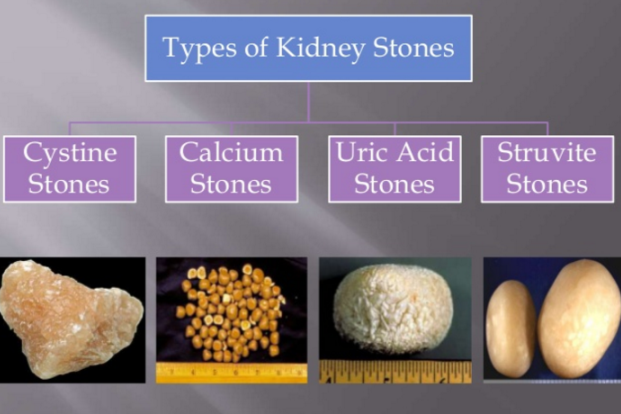Kidney Stones vs UTI: Vital Info on Therapy Choices and Avoidance
Kidney Stones vs UTI: Vital Info on Therapy Choices and Avoidance
Blog Article
Understanding the Key Distinctions In Between Kidney Stones and Urinary System Tract Infections: A Comprehensive Review for Clients
Understanding the differences between kidney stones and urinary system tract infections (UTIs) is necessary for people that may be experiencing comparable symptoms yet encounter greatly different health and wellness challenges. While both conditions can show up discomfort in the reduced abdomen or back, their underlying reasons, diagnostic techniques, and therapy procedures deviate considerably. A nuanced understanding of these differences not only help in precise self-assessment but likewise educates discussions with health care service providers. As we discover these critical elements, it comes to be clear that recognizing the distinct attributes of each problem can profoundly affect individual end results. What might be the best technique to resolving these distinctions?
Summary of Kidney Stones
The development of kidney stones, a commonly devastating and excruciating problem, highlights the vital significance of preserving renal wellness. The key types of kidney stones consist of calcium oxalate, calcium phosphate, uric acid, struvite, and cystine stones, each with distinctive causes and risk variables.
Numerous aspects contribute to the formation of kidney stones. In addition, metabolic disorders and particular clinical conditions may incline individuals to stone development.
Signs and symptoms of kidney stones can consist of severe flank hematuria, pain, and queasiness, which often motivate immediate clinical examination. Treatment alternatives vary, varying from enhanced fluid consumption and nutritional adjustments to medical interventions such as lithotripsy or medical elimination, depending on the size and location of the stones. Recognizing these aspects is important for reliable avoidance and monitoring.
Overview of Urinary System Tract Infections
Urinary tract infections (UTIs) represent an usual yet considerable health and wellness worry, affecting millions of individuals yearly. These infections happen when germs go into the urinary system, which includes the kidneys, ureters, bladder, and urethra. Most of UTIs are caused by Escherichia coli, a kind of microorganisms usually found in the intestinal system. While UTIs can influence anyone, they are especially widespread in ladies as a result of physiological distinctions that facilitate bacterial access.
The threat elements for establishing a UTI include sexual task, specific types of birth control, urinary retention, and a background of previous infections. Straightforward UTIs are usually limited to the bladder and are much more common in healthy individuals, while difficult UTIs may involve the kidneys and occur in those with underlying health issues.
Prompt diagnosis and treatment are vital to stop issues, such as recurring infections or kidney damages (Kidney Stones vs UTI). Commonly, UTIs are treated with anti-biotics, and preventative actions can be used for those with regular incidents
Common Symptoms Contrast
Signs of urinary tract infections and kidney stones can commonly overlap, causing confusion in diagnosis. Both problems can offer with discomfort in the lower abdominal area or back, yet the nature and place of the discomfort often vary. In urinary system infections (UTIs), clients usually experience a burning sensation throughout peeing, regular urges to pee, and cloudy or strong-smelling urine. On the other hand, kidney stones have a tendency to cause serious, pain that radiates from the back to the reduced abdominal area and groin, often defined as colicky pain.
In addition, UTIs might be accompanied by fever and cools, specifically in more severe instances, while kidney stones can lead to queasiness and throwing up due to extreme pain. While pain throughout urination is a characteristic of UTIs, kidney stones normally offer with even more intense discomfort episodes, which might go and come.
Medical Diagnosis Techniques
How can medical care experts precisely set apart between kidney stones and urinary system tract infections? The analysis procedure begins with a complete case history and a comprehensive evaluation of the person's signs and symptoms. Medical professionals typically execute a physical evaluation, which might disclose tenderness in the abdominal area or flank region, directing the diagnostic pathway.
Lab examinations play a critical function in comparing these 2 problems. Kidney Stones vs UTI. A urinalysis can identify the visibility of blood, crystals, or microorganisms, which are indicative of either condition. In cases of urinary tract infections, the urinalysis might reveal a substantial visibility of white blood cells and nitrites, while kidney stones may provide with specific crystals
Imaging researches, such as stomach ultrasound or computed tomography (CT) scans, are crucial for envisioning kidney stones. These imaging techniques make it possible for healthcare suppliers to examine stone dimension, location, and prospective blockages in the urinary tract. In read the full info here comparison, urinary tract infections usually do not call for imaging unless complications are suspected.
With each other, these diagnostic techniques encourage health care experts to properly set apart and detect in between kidney stones and urinary system system infections, guaranteeing that patients get ideal care and monitoring.
Treatment Choices and Avoidance
While both kidney stones and urinary system system infections (UTIs) need timely therapy, their administration strategies vary substantially.
The treatment for kidney stones typically entails discomfort administration, hydration, and sometimes, medical procedures such as extracorporeal shock wave lithotripsy (ESWL) or ureteroscopy to remove or break down stones. Individuals are frequently recommended to raise liquid consumption to promote stone flow and decrease recurrence. Dietary adjustments may likewise be needed, depending upon the stone kind.
In comparison, UTIs are primarily treated with anti-biotics to get rid of the microbial infection. The specific antibiotic prescribed relies on the germs determined and neighborhood resistance patterns. Added steps, such as increased fluid intake and urinary anesthetics, may assist minimize symptoms.
Avoidance techniques vary also; for kidney stones, keeping adequate hydration and sticking to dietary restrictions can be reliable. For UTIs, preventative strategies include proper hygiene techniques, peing after intercourse, and perhaps prophylactic anti-biotics for recurrent infections. Understanding these treatment and avoidance techniques is essential for reliable monitoring and to minimize the threat of complications connected with both problems.
Verdict

Recognizing the differences between kidney stones and urinary system infections (UTIs) is crucial for individuals that may be experiencing similar signs yet deal with greatly various wellness difficulties. The key kinds of kidney stones consist of calcium oxalate, calcium phosphate, uric acid, struvite, and cystine stones, each with distinctive reasons and risk elements.

Report this page